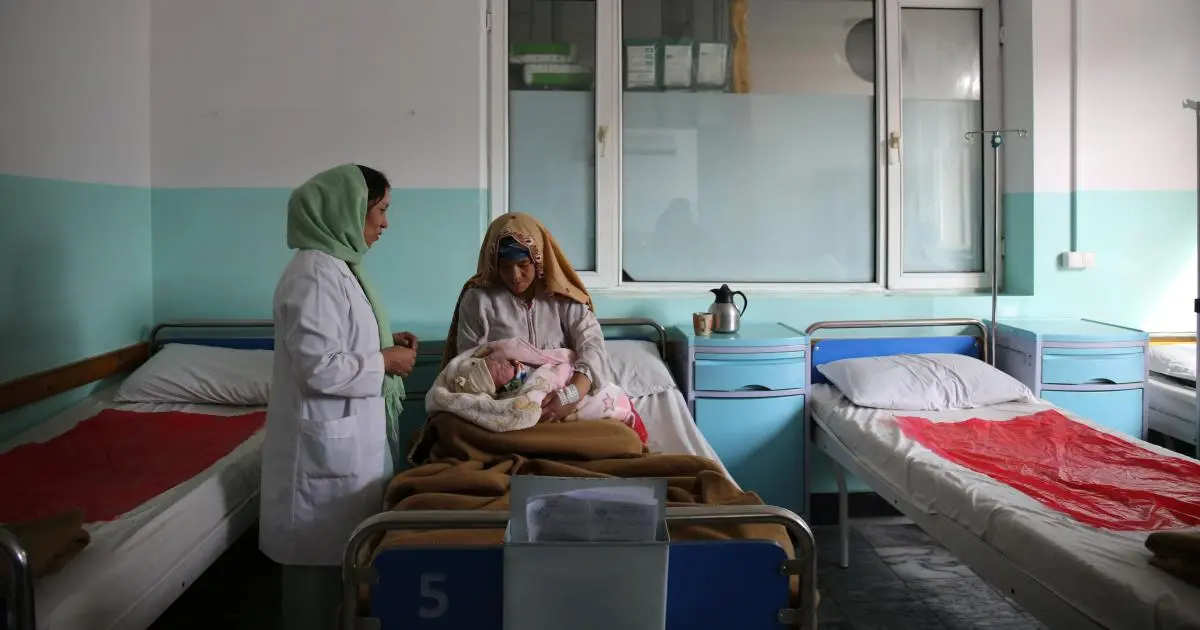BBC Launches Inquiry into Rising Maternal Deaths in Afghanistan Amid US Aid Reductions

When Shahnaz went into labor, her husband Abdul rushed to the nearest medical facility, only to find it closed. This tragic incident highlights the dire consequences of recent U.S. aid cuts in Afghanistan, which have led to the closure of over 400 medical facilities, exacerbating the already critical maternal health crisis in one of the world’s poorest nations. Abdul’s heartbreaking story underscores the urgent need for healthcare access in rural areas, where many women face life-threatening risks during childbirth.
Closure of Medical Facilities
The Shesh Pol clinic in Badakhshan province, where Shahnaz intended to give birth, is among the many medical facilities that have shut down following significant cuts to U.S. aid. The abrupt withdrawal of support came after the Trump administration dismantled the U.S. Agency for International Development (USAID), leaving communities without essential healthcare services. The clinic, a modest structure with peeling paint, was a vital resource for local women, providing trained midwives and basic healthcare. It facilitated approximately 25-30 deliveries each month, offering a lifeline in a region plagued by high maternal mortality rates due to limited access to medical care.
Abdul’s family faced a daunting journey to reach the clinic, which was a 20-minute drive away. Unfortunately, upon arrival, they discovered the facility was closed. With no alternative options nearby and the cost of transportation being a significant burden, Abdul and Shahnaz were forced to return home. Tragically, Shahnaz delivered their baby girl in the car, but both mother and child succumbed shortly after due to complications. This heartbreaking outcome illustrates the severe impact of healthcare facility closures on maternal health in Afghanistan.
Impact of U.S. Aid Cuts
The U.S. has historically been the largest donor to Afghanistan, providing approximately 43% of all aid to the country in 2024. However, the Trump administration justified the cuts by citing concerns that funding was inadvertently benefiting terrorist groups, including the Taliban. Reports indicated that millions of dollars were being misappropriated, leading to the decision to withdraw aid. The Taliban government has denied these allegations, asserting that aid is distributed through the United Nations and non-governmental organizations, without their involvement.
The consequences of these aid cuts are evident in the rising maternal and infant mortality rates. Abdul’s story is not an isolated incident; many families in Afghanistan are facing similar tragedies. The lack of access to healthcare facilities has forced women to give birth at home, often without the assistance of trained medical professionals, leading to increased risks during childbirth. The closure of clinics has left many communities vulnerable, with no safety net for expectant mothers.
Surge in Hospital Admissions
As clinics close, the main regional hospital in Faizabad is experiencing an overwhelming influx of patients. The hospital, which has only 120 beds, is now admitting over 300 patients, leading to dire conditions for those seeking care. Women who have gone into labor or suffered miscarriages are forced to share beds, exacerbating the already critical situation. Dr. Shafiq Hamdard, the hospital director, reported that maternal deaths have surged, with the current year’s figures matching those of the previous year in just a few months.
The hospital’s funding has also been drastically reduced, from an annual budget of $80,000 to just $25,000. This financial strain hampers the ability to provide adequate care, further endangering the lives of mothers and newborns. The head midwife, Razia Hanifi, expressed her exhaustion from the overwhelming patient load and the lack of resources, emphasizing the urgent need for support in the healthcare system.
Challenges for Women’s Healthcare
The Taliban government’s policies have further complicated the healthcare landscape for women in Afghanistan. Restrictions on women’s education and employment have resulted in a significant shortage of trained healthcare professionals, particularly midwives. With midwifery training banned for women, the future of maternal healthcare looks bleak. Female students who were pursuing medical training before the Taliban’s takeover have been left without options, leading to a growing crisis in healthcare access for women.
As the situation continues to deteriorate, the right to health and life for Afghan women is increasingly at risk. The Taliban’s justification for their policies, framed as internal matters, raises concerns about the future of healthcare in the country. Without immediate intervention and support, the cycle of maternal and infant mortality will likely worsen, leaving countless families to face the devastating consequences of inadequate healthcare.
Observer Voice is the one stop site for National, International news, Sports, Editor’s Choice, Art/culture contents, Quotes and much more. We also cover historical contents. Historical contents includes World History, Indian History, and what happened today. The website also covers Entertainment across the India and World.
Follow Us on Twitter, Instagram, Facebook, & LinkedIn

